Differences Between Ephemeral Disc and Persistent Disc
“Instance”: It is a virtual machine.
“Flavor”: It is the hardware associated with “Instance”. Like RAM, CPU, disk.
There are 2 types of storage known for instances used in today's cloud services. One of them is the ephemeral disk, that is, the short-lived temporary disk, and the other is the persistent disk, that is, the type of disk we define as permanent.
Ephemeral disks are temporary disks used by instance. Ephemeral storage is very useful for basic requirements such as the storage of the operating system, but servers running on these disks are generally preferred for short-term use. Ephemeral disks come with virtual machines, which means that if the virtual machine is terminated for some reason (intentionally or unintentionally), these virtual disks will be lost. Therefore, this area is used to store content where data loss is not important.
Persistent disk is a durable, high-performance, distributed block storage solution. It offers different IOPS (data read/write speed) options with SSD and HDD storage areas that can be added to running instances, and also allows resizing and provides flexibility. Persistent disks can be connected to any instance and used as a permanent storage area for that instance. They are used completely independently of the instances they are connected to. Therefore, even if the virtual machine is deleted, the data can be retained or completely destroyed. It also helps to save money by shutting down the excess capacity virtual machine that is not needed.
A server opened on ephemeral disks does not have the flexibility of a server running on block storage, that is, permanent disks. Ephemeral disks can be damaged by operations such as resize, migration due to their nature, therefore resize operation is not recommended for instances created on local disks.
Q: Can the Ephemeral OS disk be resized?
A: No, the OS disk cannot be resized after the ephemeral disk is provisioned.
Q: Can manageable block storage be added to the virtual server installed on the ephemeral disk?
A: Yes, block storage can be added regardless of the server's OS disk.
Q: Can the Ephemeral OS disk be created using Powershell or CLI?
A: Yes, you can create VMs with ephemeral OS disk using REST, templates, PowerShell and CLI.
